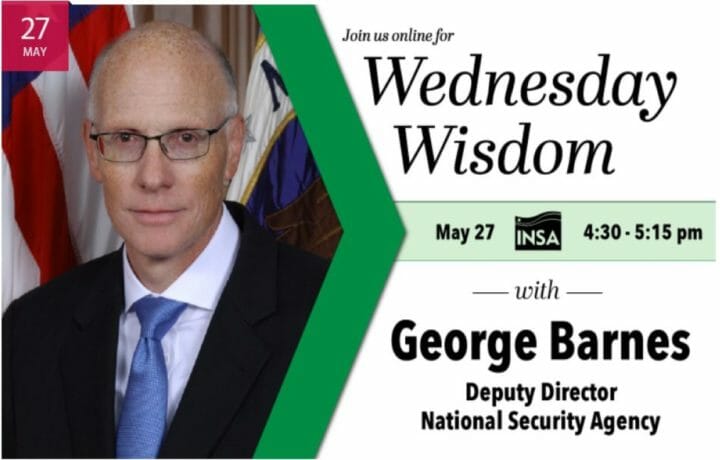In October 2019, the National Security Agency (NSA) redefined its cybersecurity mission by enhancing partnerships with industry through collaboration and information sharing. A new directorate was born: the Cybersecurity Directorate. The directorate focuses on foreign intelligence and cyber defense missions while working to mitigate threats to national security systems and critical infrastructure, sprinkled with a focus on the defense industrial base and improvement of weapon security on top.
The Cybersecurity Directorate reinvigorates NSA’s white hat missions by sharing critical threat information and collaborating with partners and customers to better equip them to defend against cyber threat actors. The directorate also better positions NSA to operationalize threat intelligence, vulnerability assessments, and cyberdefense expertise by integrating these efforts to deliver prioritized outcomes.
The Intelligence and National Security Alliance (INSA) held a one-on-one chat with Executive Vice President John Doyon and NSA Deputy Director George Barnes yesterday. Barnes has been at NSA for over 33 years and said the timing could not be better for the virtual meetups prompted by the pandemic, because everyone has a role to play in how we protect critical activities that are vital to getting the global economy up and running.
INTELLIGENCE MEETS CYBERSECURITY
The NSA’s role in intelligence collection is vital to successful cybersecurity strategy. “There’s nothing like being a hunter to help you be a better defender,” Barnes says. But not just SIGINT, HUMINT, OSINT, etc. Any agency needs to utilize all of those intelligence sources together. Intelligence is more actionable if it is integrated.
Misinformation and disinformation is another hot topic, even before COVID-19. The directorate is handling this issue more and more frequently in our society. Not only can adversaries push this information, but they can fabricate it, too. As a nation, we need to position ourselves to understand what is true and what is fiction. Finding that truth takes data and analytical rigor to ensure that one threat on its own doesn’t end in bad decision-making or ramifications.
Automating intelligence with machines is another piece to the puzzle. This started a culture change, and Barnes is having discussions and working with his deputy director counterparts in intelligence organizations to find ways to connect the influx of data so outcomes are enriched, holistic and efficient.
PARTNERING WITH NON-TRADITIONAL ENTITIES
“We have a continued and increasing outreach from industry across our nation. Industry brings intellect, reach and capacity that we can factor in and do much better together,” Barnes notes.
Barnes also discussed the potential for private organizations to provide more SIGINT capabilities and how this will affect NSA. The world we live in is drived by access to data, so analytics are developed to create meaning out of noise. NSA was carrying this load solely for some time, but now there is more capacity in the commercial space – an opportunity for collaboration. Commercial intelligence is something that they can leverage while innovating with non traditional contractors. NSA just doesn’t have the capacity to scale and solve every problem, so industry can help.
Building a FUTURE FOR SUCCESS in health security
COVID-19 has created unprecedented problems. Keeping the security of pharmaceuticals, R&D, and vaccine data in a virtual interconnected, industry and government environment is a true challenge. A few days into March, Barnes said he was receiving calls from the National Counterintelligence Security Agency (NCSC) and they have since doubled down, accelerated, and fine-tuned their focus because and according to Barnes, “health security and national security are one in the same.”
While building this future of success, Barnes touches on the agency’s strategy to get younger generations interested in cybersecurity. As a nation we face a world that is unstable and driven by all types of influences. NSA doesn’t start their recruitment marketing efforts in college: they start as early as grade school across the country every summer, working with universities to plant the seeds to draw people in to this skillset. “People need this no matter what field they apply themselves in.”
Finally, Barnes spoke to the importance of diversity at NSA and how he embraces this from the core in his directorate. He hopes to draw people in to NSA to be a better reflection of our country, and purposefully extend their reach to ensure they have diversity in all its forms. Not just to have it, but to be a key component of NSA’s foundation.
“We have a ways to go,” said Barnes. “To be competent and capable against our adversaries, we need to do things a different way.”




